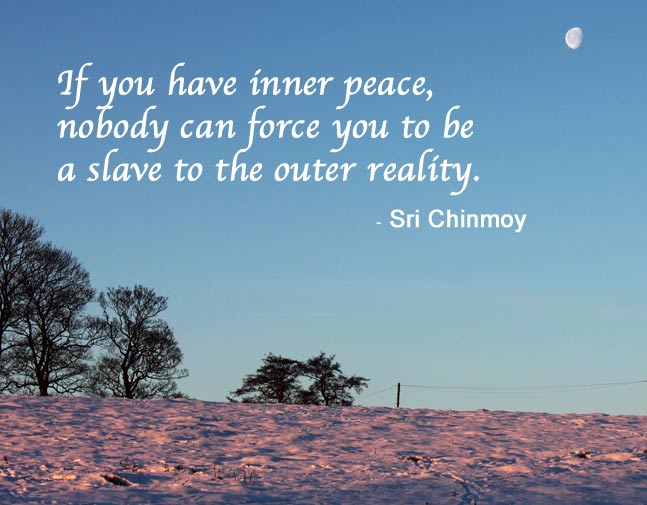
As a profession I teach Economics. The first lesson of economics is the concept of scarcity. Because we have scarcity we have to decide how to distribute these limited resources. If you gain some goods, that means less for me. This law of economics we can also feel in all aspects of life.
However, from a spiritual perspective this law is completely misleading. When we give wholeheartedly and with sincerity, we enable ourselves to have more. If we offer good will to others, if we can give others joy, then this is the best way of being joyful ourselves.
Anything we do for the world
Is bound to be returned
Infinitely more.
– Sri Chinmoy [1. Fifty Freedom Boats part 4]
If we think there is only a limited amount of love, we will try and possess it; we will love another, but in a limited and possessive way. With this conception of love, we will always fear losing it; we will fear that our limited love could easily escape. However, if we love unconditionally, if we love everyone we meet, we come to appreciate that it is natural to be loving all the time. To love others, we have to have love for ourselves. This is not an egotistical love; it is a recognition of our divine essence, our real Self. If we feel love and joy to be scarce commodities we will try and ration it and grasp onto it when we see. But, when we learn to give unconditionally, we gain more of what we give. As St Francis of Assisi, concisely put: “For it is in giving that we receive.”
Attitude to Money
If we see others in need and offer financial assistance, we learn the value of giving. This confidence to give to others in need, helps us to attract money into our lives. It is only in cheerfully using money that we can feel wealthy. I used to work for a boss who was a multi-millionaire. However, he was very miserly; he would turn off the heating and lights to save a few pence. He couldn’t give anything to anyone. He had stacks of money in the bank, but he felt poor. His millions gave no joy because he couldn’t spend it.
Giving with Sincerity
If we give to others with the hope that we will get in return, this is not sincere joyful giving. When we give with this attitude, there is a fear our giving may not pay dividends. With this attitude, we don’t really know if we actually have joy to give; it becomes like a bargain. This is not effective. If we give unconditionally, we do not need or expect anything in return. Giving is its own reward. Whether it is misused or not returned doesn’t matter – because we know that giving selflessly helps us to do and become the right thing.
Learn by Teaching.
Love cannot remain by itself — it has no meaning.
Love has to be put into action, and that action is service
– Mother Teresa.
I always tell my students that the best way to revise / learn is to teach others. If you just read the same notes, it is hard to make progress. However, if they take time to explain something to others, then there own understanding and comprehension increases significantly. It is the same principle in life, what we teach and give to others is the lessons we will learn ourselves.
If we judge others, we will feel judged ourselves. If we offer happiness to others, we will be happy ourself. If we are miserly towards other people, we will feel miserly ourselves.
Related
Photo: Sri Chinmoy Centre Galleries





